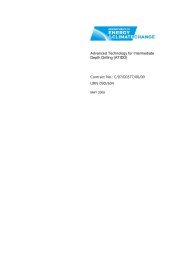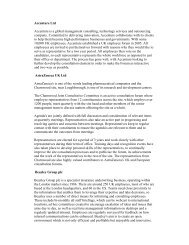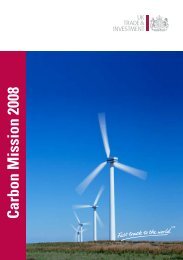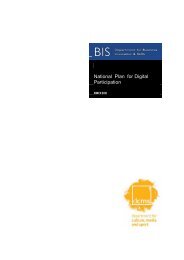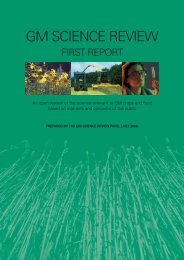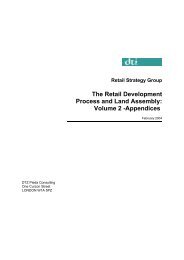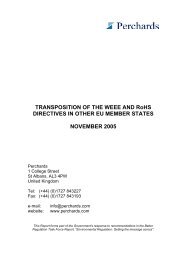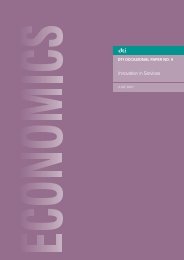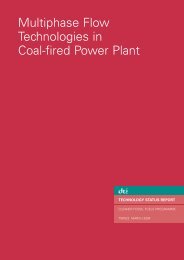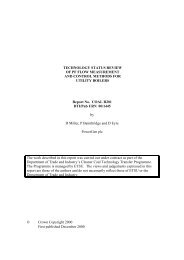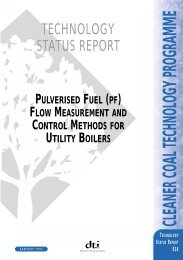Public Policy: Using Market-Based Approaches - Department for ...
Public Policy: Using Market-Based Approaches - Department for ...
Public Policy: Using Market-Based Approaches - Department for ...
Create successful ePaper yourself
Turn your PDF publications into a flip-book with our unique Google optimized e-Paper software.
consultants to Defra of £11 per tonne, although this estimation was ‘subject to<br />
major uncertainties’.<br />
In summary, experience suggests that the price paid by Defra in the initial<br />
auction to obtain commitments to reduce emissions was significantly higher<br />
than the underlying price of the allowances. A different auction design (such as<br />
perhaps a closed-bid auction) might have allowed Defra to obtain a higher level<br />
of reductions <strong>for</strong> the same cost or the same level of reductions at a lower cost.<br />
However, when measured against the stated objective of achieving emissions<br />
reductions in a cost-effective manner (in terms of costs incurred by the<br />
participating organisations) the scheme appears, on the basis of the evidence of<br />
its first few years, to have been highly successful. It has delivered emissions<br />
reductions in a cost effective way, by providing incentives <strong>for</strong> emissions<br />
reductions to take place in the industries and organisations with the lowest<br />
abatement costs.<br />
EXPERIENCE IN EMISSIONS TRADING<br />
Section 11 – Emissions Trading<br />
The second objective of the UK-ETS was to provide early experience in<br />
emissions trading <strong>for</strong> UK organisations and in so doing to provide firms with an<br />
advantage over their international competitors in future international trading<br />
schemes.<br />
Interviews with direct participants per<strong>for</strong>med by NERA, NAO and LECG suggest<br />
that this objective has been achieved. According to the NAO, all respondents in<br />
their study agreed that the scheme had improved their understanding of the<br />
benefits emissions trading could bring to them and, although some direct<br />
participants did not use the market because they had achieved their emissions<br />
target <strong>for</strong> that year, most of the participants said that their confidence in the use<br />
of the market <strong>for</strong> emissions had improved.<br />
In addition, of eleven participants that have sites that will fall within the scope of<br />
the EU-ETS, most felt that they are better prepared to take part in this international<br />
scheme than they would have been in the absence of the UK scheme.<br />
The majority of brokers and verifiers interviewed by NERA considered that their<br />
experience in the UK-ETS had left them well placed to provide services to<br />
companies participating in the EU-ETS. However, the verifiers also noted that the<br />
full benefits of the UK experience would only be realised if the EU-ETS integrity<br />
standards are similar to those used in the UK-ETS. Some verifiers expressed<br />
concerns that the lack of guidance on verification standards or requirements <strong>for</strong><br />
accreditation under the EU-ETS would lead to different standards of verification<br />
across EU members, which can threaten the integrity of the programme, as well<br />
as presenting obstacles to the trade of verification services. 177<br />
177 NERA Economic Consulting (August 2004) Review of the First and Second Years of the UK Emissions Trading<br />
Scheme, a report prepared <strong>for</strong> the UK <strong>Department</strong> <strong>for</strong> Environment, Food and Rural Affairs, <strong>Department</strong> <strong>for</strong> the<br />
Environment, Food and Rural Affairs: London.<br />
163



